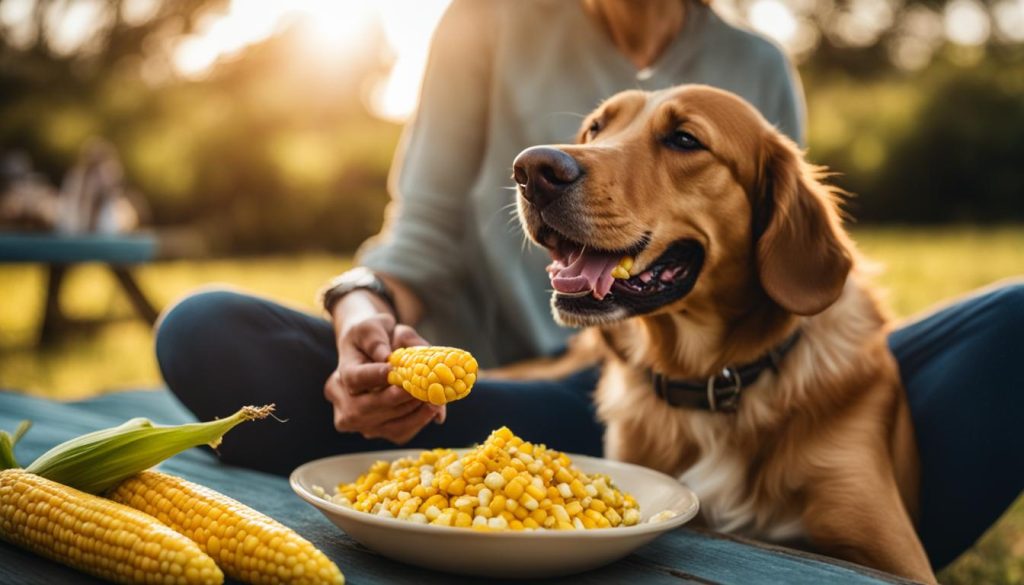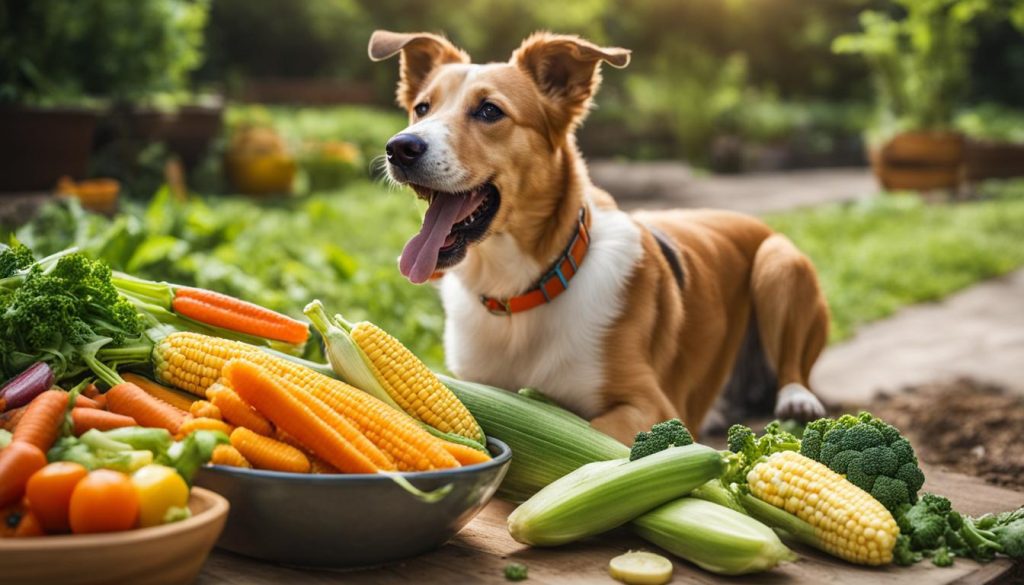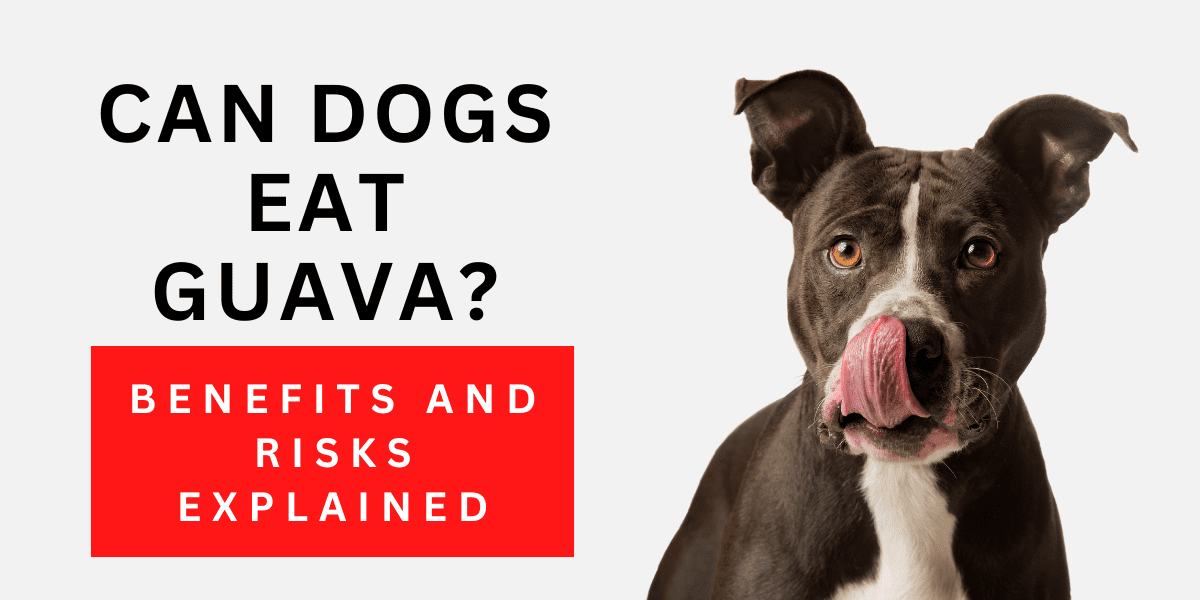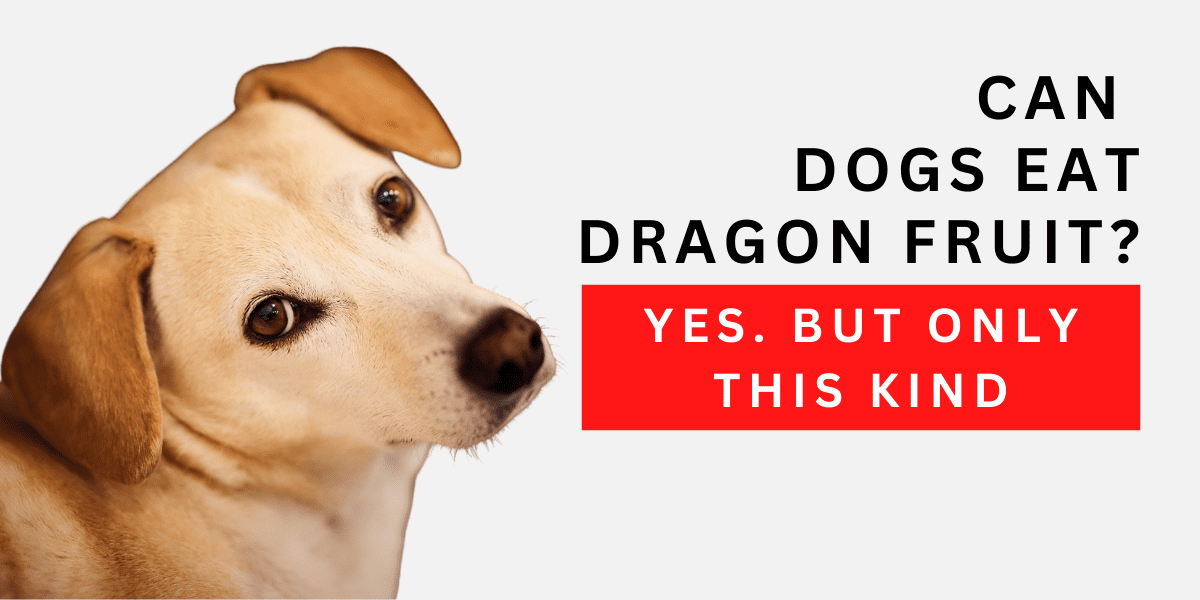As a dedicated pet owner, one often wonders, “Can dogs eat sweetcorn?” I turned to expert opinions from the realm of veterinary medicine to shed light on this query. In my conversation with Dr. Brittany Caramico, whose expertise at Furry Friends Adoption, Clinic & Ranch is well-known, she shared insights that might surprise you. Despite common concerns about pet food safety, she confirmed that sweetcorn is generally safe for dogs, assuming they’re not part of the small percentage prone to corn allergies. Proper preparation and monitoring for allergies are key to incorporate sweetcorn into canine nutrition responsibly.
When considering a dog diet that’s both nutritious and enjoyable for your furry friend, it’s essential to understand the pros and cons of various foods. So let’s delve into whether sweetcorn belongs in your dog’s bowl.
Can Dogs Eat Sweetcorn? Yes! They can certainly enjoy it.
- Sweetcorn can be a beneficial addition to your dog’s diet when prepared safely and correctly.
- Only about 4% of dogs are allergic to corn, but it’s important to watch for adverse reactions.
- Pet food safety dictates that sweetcorn should be given to dogs without the cob, butter, salt, or seasonings.
- Canine nutrition experts regard sweetcorn as a source of protein, fiber, and essential fatty acids when fed in moderation.
- Understanding your dog’s individual dietary needs and potential allergies is crucial when introducing new foods like sweetcorn.
Introduction to Sweetcorn in a Dog’s Diet
When it comes to incorporating vegetables into my furry companion’s diet, I’ve always been keen to explore options that provide nutritional benefits without compromising their health. Sweetcorn surfaces as a popular choice among many dog owners seeking dog-friendly vegetables. It’s essential to understand the reasons behind this choice—the benefits of sweetcorn for dogs are grounded in its substantial nutritional composition.
Nutritional Value of Sweetcorn for Dogs
From conversations with Dr. Caramico and my research into canine nutrition, I’ve learned that an ear of sweetcorn packs a punch in terms of nutrients. Sweetcorn contributes vital protein, essential carbohydrates, and insoluble fiber to a dog’s diet, along with healthy fats, and omega-6 fatty acids, particularly linoleic acid. Furthermore, this veggie offers close to 90 calories per ear, 3 grams of protein, a safe level of fat at 1 gram, and a wholesome 19 grams of carbohydrates. The inclusion of antioxidants like vitamin C and carotenoids, namely lutein and zeaxanthin, bolsters the defense against cellular damage and supports eye health.
Common Misconceptions Surrounding Dogs and Corn
Among pet owners, there’s a lingering uncertainty about feeding vegetables to dogs, particularly concerning the safety of sweetcorn. Delving into this topic revealed that sweetcorn itself isn’t harmful; the method of feeding is where the risks may arise. For example, giving dogs corn on the cob can be dangerous, as it’s a choking hazard and can cause intestinal blockage. It’s these instances that underscore the importance of feeding sweetcorn responsibly, ensuring it’s as beneficial and as safe as possible to be a part of a dog-friendly diet.
Can Dogs Eat Sweetcorn: Understanding Canine Nutrition and Diet
As I delve deeper into the world of canine nutrition and dog diet, I find it fascinating how even simple foods like sweetcorn can have substantial implications for our furry friends. I’ve learned that feeding vegetables to dogs, particularly sweetcorn, isn’t as straightforward as one might think. Veterinarians consistently emphasize the significance of recognizing the calorie content and nutritional value of every tidbit we offer to our pets.
The first rule of pet food safety is ensuring that the only sweetcorn our dogs consume is plain. That means no butter, salt, or any other seasonings that we humans might enjoy but could potentially harm our canine companions. Moreover, when we think about incorporating corn into our dogs’ meals, moderation is key. Just like any other addition to a diet, sweetcorn should be given infrequently and certainly not exceed 10% of a dog’s daily caloric intake. This helps prevent any upheaval in their well-established dietary routines and maintains a balance that’s crucial for their health.
However, it’s not just about keeping portions small; it’s also about how vegetables like sweetcorn complement the rest of their diet. Do they get enough protein, healthy fats, and carbohydrates from their primary meals? How does sweetcorn fit into the picture? These are questions I mull over to ensure an optimal meal plan for a dog’s health.

As someone who takes a keen interest in how food affects our pets, I make a point of discussing these topics with professionals who are knowledgeable in the field of animal health. Their wisdom often steers me towards a path that’s not only healthful for the dogs but also practical for owners to implement. With the holistic approach towards feeding vegetables to dogs, including sweetcorn, it’s clear that understanding the nuances of our dogs’ diets is as important as loving them unconditionally.
Examining the Health Benefits and Potential Risks of Sweetcorn for Dogs
As a dog owner exploring the intricacies of canine nutrition, I’ve come to appreciate the delicate balance needed in diet tailoring. Including vegetables such as sweetcorn can be beneficial, but understanding both the positive effects and the risks of feeding sweetcorn to dogs is crucial for their well-being.
Pros of Including Sweetcorn in Your Dog’s Diet
One of the main benefits of sweetcorn for dogs is its nutritional profile. It’s a good source of carbohydrates and dietary fiber, which can aid in digestion. Sweetcorn is also packed with essential vitamins like C, B, E, and K, and provides important minerals including magnesium and potassium. These contribute to a dog’s overall health and can aid in their physical and mental vitality.
Sweetcorn’s role in a dog diet as a source of protein should not be overlooked. Offering a break from meat-based proteins, it provides variety and can help keep mealtime interesting for our canine companions. Plus, the antioxidants present in sweetcorn play a part in battling free radicals and supporting robust immune systems in dogs.
Cons and Risks of Feeding Dogs Sweetcorn
However, like any aspect of diet management, caution is advisable. One of the risks of feeding sweetcorn to dogs is the threat of choking, particularly with corn on the cob, which can also cause intestinal blockages if ingested. Canned or creamed corn typically contains a high salt content, and overconsumption can lead to gastrointestinal upset.
Dogs might also have a tough time digesting hard, unpopped corn kernels, which furthers the risk of digestive issues. It’s also wise for dog owners to avoid corn-based human snacks like chips and tortillas. These snacks are often high in sodium and are not appropriate for a canine nutrition plan, potentially containing seasonings and additives harmful to pets.
Ultimately, sweetcorn should be regarded as a treat rather than a staple, ensuring our dogs receive a balanced and varied diet for optimal health.
How to Safely Incorporate Sweetcorn into Your Dog’s Meal Plan
As I delve deeper into canine nutrition, I understand the importance of including dog-friendly vegetables like sweetcorn in my furry companion’s diet. However, the key is to do so with care and knowledge. Consulting with a vet is my starting point, as it provides me with a clear idea of how much sweetcorn suits my dog’s dietary needs without causing any imbalance.
Portion Control and Frequency of Sweetcorn Treats
Feeding vegetables to dogs requires attentive portion control, particularly with sweetcorn. I always measure the amount carefully, ensuring it doesn’t exceed 10% of my dog’s daily caloric intake. This integration is done gradually, observing for any signs of gastrointestinal upset before making it a regular addition to their meal plan. Frequency is just as crucial; hence, I treat sweetcorn as an occasional delight rather than a staple.
Preparation Tips for Dog-Friendly Sweetcorn Serving
When preparing sweetcorn, whether as an alternative vegetable for dogs or as a staple treat, I adhere to simple methods. Boiling corn in unsalted water and scraping off the kernels prevents any risks associated with corn on the cob. If I opt for frozen corn, I check the label diligently to confirm there are no added salts, sugars, or seasonings that could be harmful to my dog’s health.

Overall, thoughtfulness in the dog diet goes a long way, and incorporating sweetcorn provides both variety and nutrition in moderation. It’s a responsibility I gladly embrace for the well-being of my four-legged pal.
Exploring Dog-Friendly Vegetables: Alternatives to Sweetcorn
As a dog owner committed to providing optimal canine nutrition, I often explore a variety of dog-friendly vegetables beyond the usual sweetcorn. There’s a whole world of alternative vegetables for dogs that can complement their diet while offering an array of nutrients. I’ve found that starting with familiar veggies like baby carrots and green beans is a great way to introduce new flavors and textures.
When I’m feeding vegetables to dogs, I like to think about not only the nutritional value but also the enjoyment they get from crunching on a fresh cucumber or digging into some soft, cooked pumpkin. These alternatives are not just safe; they’re also an excellent source of hydration, vitamins, and fiber. But yes, moderation is essential. Even though these veggies are healthy, they should only make up a small part of your dog’s diet.
Before I add any new vegetable to my dog’s meal routine, I consult with my vet. It’s important to ensure any changes support their unique dietary needs and don’t lead to digestive upsets or nutritional imbalances. Every dog is different, and what works wonders for one may not be suitable for another. So, always tailor your dog’s diet with guidance from a professional who understands canine nutrition inside and out.
Conclusion
Wrapping up our exploration into the world of canine nutrition, I’ve learned that sweetcorn indeed has its rightful place within a balanced dog’s diet. However, the kernel of wisdom lies in serving this human food in a way that aligns with pet food safety standards. Bearing in mind potential dangers such as allergies and the choking risk associated with corn on the cob, it’s essential to moderate the portion of sweetcorn to ensure it doesn’t exceed a mere 10% of my dog’s caloric intake. This practice guarantees that the benefits of this vegetable are enjoyed without nutritional excesses.
When it comes to feeding vegetables to dogs, variety is the spice of life. As much as my furry friend might enjoy the occasional nibble of sweetcorn, I’m intrigued by the plethora of alternative vegetables for dogs. Vegetables like carrots, green beans, and cucumbers provide similar nutritious perks and can prevent the monotony of a single-vegetable diet. The trick lies in choosing dog-friendly options and preparing them without any harmful additions.
As a responsible pet owner, I understand the imperative of consulting with a veterinarian before crafting or altering my dog’s meal plan. Doing so guarantees that my pet’s diet aligns with his unique health requirements and dietary tolerances. Whether it’s sweetcorn, pumpkin, or any other canine-friendly vegetable, my priority remains the overall well-being and vitality of my dog, ensuring every meal contributes to a healthy and happy life.
FAQ
Can dogs eat sweetcorn?
Yes, dogs can eat sweetcorn as long as it is given in moderation and prepared correctly, such as removing the kernels from the cob, and without any added butter, salt, or seasonings. It is important to monitor for any allergic reactions as well.
Is sweetcorn safe for dogs?
Sweetcorn is generally safe for dogs if they are not allergic to it and it is served appropriately. Always avoid giving sweetcorn on the cob to prevent choking risks and potential intestinal blockages.
What are the nutritional benefits of sweetcorn for dogs?
Sweetcorn provides dogs with protein, carbohydrates, insoluble fiber, and healthy fats. It contains essential omega-6 fatty acids, vitamins like C, B, E, K, and minerals such as magnesium and potassium. Additionally, it has carotenoids that promote eye health.
Are there any misconceptions surrounding dogs and corn?
A common misconception is that corn is a significant allergen for a majority of dogs. However, corn allergies in dogs are quite rare, affecting an estimated 4% of the dog population.
What are the pros of including sweetcorn in a dog’s diet?
Sweetcorn can contribute beneficial nutrients to a dog’s diet, including essential vitamins, minerals, and fiber. It offers a source of carbohydrates and can be a low-fat treat when given in moderation without any added ingredients.
What are the risks of feeding sweetcorn to dogs?
The risks include potential for choking if served on the cob, gastrointestinal upset, especially if the sweetcorn is canned or creamed with high salt content, and the possibility of an allergic reaction, despite being rare.
How much sweetcorn can I feed my dog?
Sweetcorn should be fed in small quantities as a treat, not exceeding 10% of a dog’s total daily caloric intake. It is best to consult with a veterinarian for personalized advice on portion sizes for your dog.
What are some preparation tips for dog-friendly sweetcorn servings?
Cook corn in unsalted water and remove the kernels from the cob before serving. You can also use frozen corn as a crunchy topper. Ensure that there are no additional ingredients that may harm your dog.
What are some dog-friendly vegetable alternatives to sweetcorn?
Other dog-friendly vegetables include baby carrots, green beans, cucumber, and pumpkin. Just like with sweetcorn, ensure these vegetables are prepared without harmful additives and served in moderation.
Should I consult a vet before changing my dog’s diet to include sweetcorn or other vegetables?
Yes, it is always wise to consult with a veterinarian before making any significant changes to your dog’s diet. They can provide specific advice based on your dog’s health, breed, and nutritional needs.






